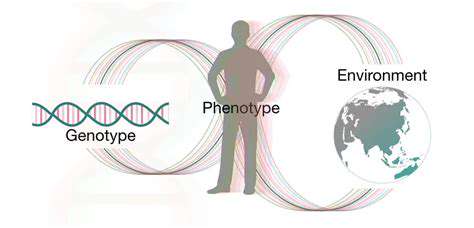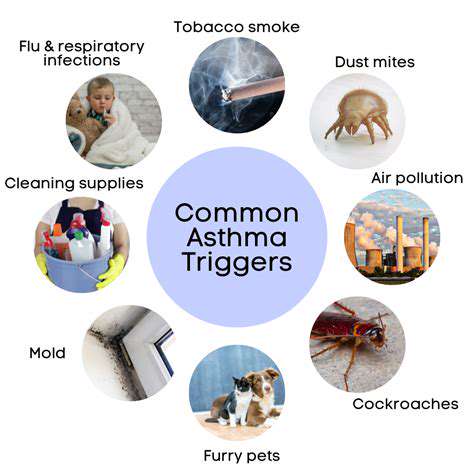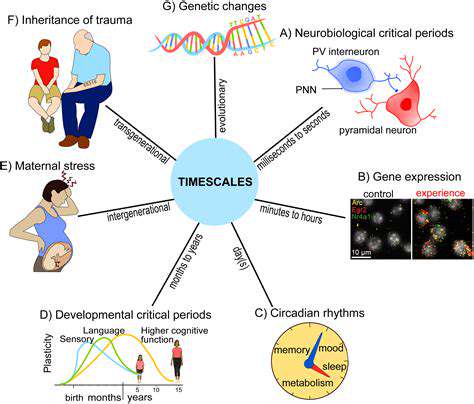Exploring the Causes of Social Anxiety for Better Management

Cognitive Biases and Negative Self-Perceptions
Understanding Cognitive Biases
Cognitive biases are systematic patterns of deviation from norm or rationality in judgment. These mental shortcuts, while often helpful in processing information quickly, can lead to inaccurate conclusions and distorted perceptions of ourselves and others. They influence how we interpret events, make decisions, and form opinions, which can play a significant role in shaping our self-perceptions, especially when it comes to social situations. Understanding these biases is crucial to recognizing how they might contribute to negative self-perceptions and ultimately, social anxiety.
The Impact of Confirmation Bias
Confirmation bias is a prevalent cognitive bias that involves seeking out and interpreting information that confirms existing beliefs, while ignoring or downplaying contradictory evidence. This tendency can reinforce negative self-perceptions, especially in individuals predisposed to social anxiety. If someone already believes they will be judged negatively in social situations, they might selectively focus on social cues that confirm this belief, like a perceived critical look or awkward silence, while dismissing more positive or neutral interactions. This creates a self-fulfilling prophecy, further exacerbating anxiety.
Overgeneralization and Negative Self-Attribution
Overgeneralization is another cognitive bias that involves drawing sweeping conclusions based on limited evidence. Individuals prone to social anxiety often engage in this pattern of thinking, where a single negative social experience is seen as indicative of general incompetence or unlikeability. For instance, a minor mishap in a conversation might be interpreted as a reflection of their overall social worth, leading to a cycle of negative self-attribution and subsequent avoidance of social situations.
The Role of Availability Heuristic
The availability heuristic describes our tendency to overestimate the likelihood of events that are readily available in memory. In the context of social anxiety, vivid memories of past negative social interactions, perhaps characterized by embarrassment or rejection, are readily accessible. This makes these experiences seem more frequent and likely to recur. This biased recall of negative experiences contributes to a heightened sense of vulnerability and fear in social settings, reinforcing negative self-perceptions.
The Influence of Negative Self-Schemas
Negative self-schemas are deeply ingrained, negative beliefs about ourselves. These schemas often develop over time, shaped by past experiences and interactions. Individuals with established negative self-schemas about their social competence are more likely to interpret ambiguous social situations negatively. For instance, a person with a negative self-schema might view a simple hesitation during a conversation as confirmation of their perceived social inadequacy, leading to greater anxiety and reinforcing these deeply ingrained negative perceptions.
The Connection Between Cognitive Biases and Social Anxiety
Cognitive biases, like confirmation bias, overgeneralization, and the availability heuristic, play a significant role in the development and maintenance of social anxiety. They contribute to negative self-perceptions by creating a self-fulfilling cycle of negative thinking and avoidance behaviors. By recognizing these biases, individuals can start to challenge negative thought patterns and develop more realistic and positive self-perceptions, ultimately reducing their social anxiety.

The Interplay of Biological Factors

Genetic Predisposition
Understanding the intricate interplay of biological factors in human health requires acknowledging the significant role of genetics. Inherited traits play a crucial role in shaping an individual's susceptibility to various diseases and conditions. For example, specific gene variations can predispose individuals to certain cancers, cardiovascular diseases, or mental illnesses. This genetic predisposition doesn't guarantee the development of these conditions, but it certainly increases the risk, highlighting the importance of preventative measures and early detection strategies.
Environmental Influences
Environmental factors, encompassing everything from exposure to toxins and pollutants to dietary habits and lifestyle choices, exert a profound influence on biological processes. Exposure to certain environmental hazards can significantly increase the risk of developing chronic diseases. A balanced diet rich in fruits, vegetables, and whole grains, coupled with regular physical activity, can mitigate these risks and promote overall well-being. Furthermore, social factors, such as stress levels and access to healthcare, can have a considerable impact on health outcomes.
Epigenetics
Epigenetics explores how environmental factors can modify gene expression without altering the underlying DNA sequence. This fascinating field demonstrates that our experiences and surroundings can significantly influence how our genes are read and interpreted. Epigenetic modifications can be influenced by a wide array of environmental exposures and lifestyle choices. Understanding these mechanisms provides valuable insights into the complex relationship between nature and nurture in determining health outcomes.
Cellular Processes
Cellular processes form the bedrock of biological function. From cellular respiration to DNA replication and repair, every aspect of a cell's activity contributes to the overall health of the organism. Disruptions in these processes can lead to a range of health problems. Maintaining optimal cellular function is critical for preventing disease and promoting longevity.
Disruptions in cellular processes can stem from various factors, ranging from genetic mutations to environmental exposures. Understanding these processes allows for the development of targeted therapies and interventions aimed at restoring cellular function and overall well-being.
Immune System Function
The immune system acts as the body's defense mechanism, protecting against pathogens and foreign invaders. Its intricate network of cells and processes plays a critical role in maintaining health and fighting off infections. A healthy immune system is vital for preventing illness and maintaining overall well-being. Numerous factors can influence immune function, including genetics, lifestyle choices, and exposure to pathogens and environmental triggers.
Hormonal Regulation
Hormonal imbalances can significantly impact various physiological processes, influencing everything from mood and metabolism to reproduction and growth. Hormonal regulation is essential for maintaining homeostasis and preventing a multitude of health complications. For example, fluctuations in hormone levels can contribute to mood disorders, metabolic syndromes, and reproductive issues. Understanding the intricate regulatory mechanisms involved in hormonal balance is crucial for developing effective therapeutic strategies to address associated health problems.
Interactions Between Biological Factors
The interplay between various biological factors is remarkably complex and multifaceted. Genetic predisposition, environmental influences, cellular processes, the immune system, and hormonal regulation all interact in intricate ways to influence health outcomes. Understanding these complex interactions is paramount to developing comprehensive approaches to disease prevention and treatment. This multifaceted approach to health considers the interplay of multiple biological factors, rather than focusing on isolated components, to gain a more complete picture of the mechanisms underlying disease susceptibility and progression.